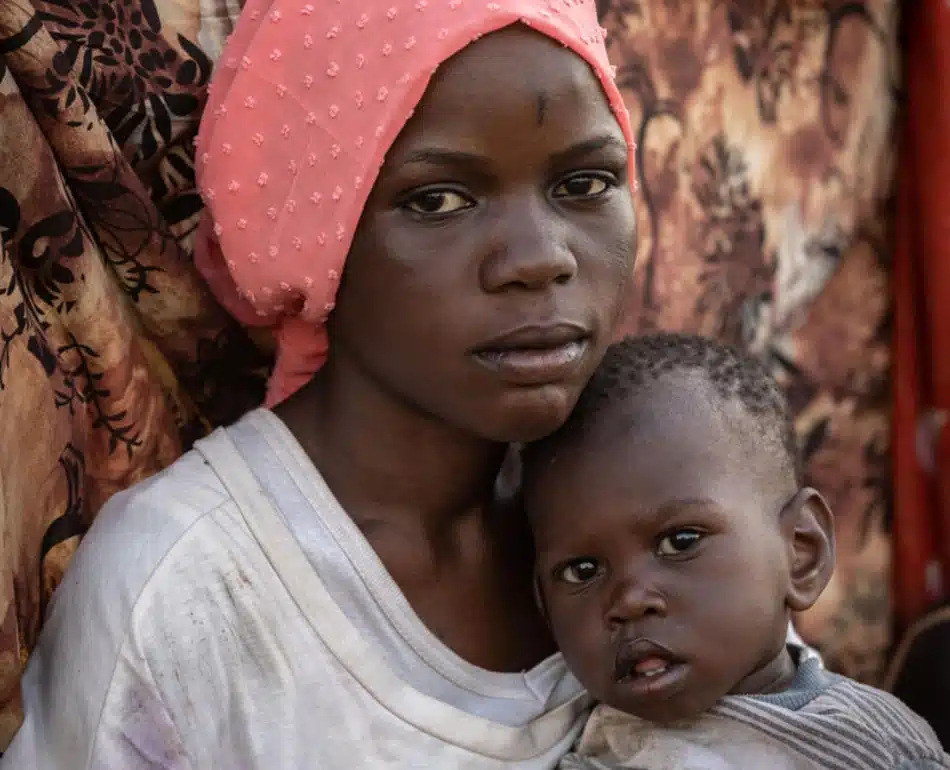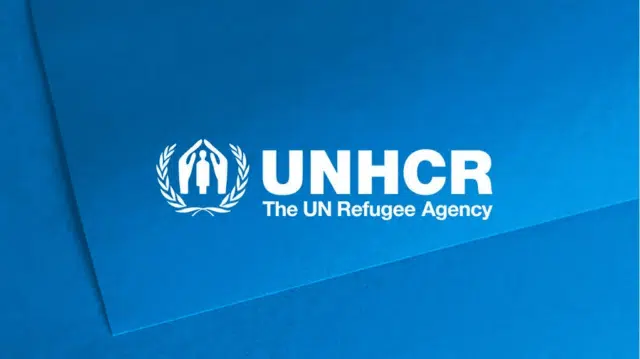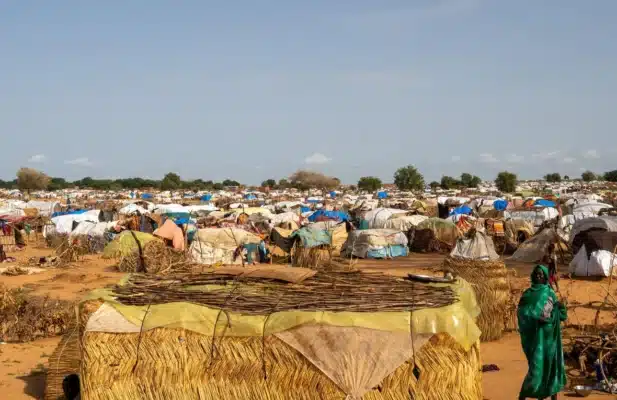
South Sudanese returnee Nyauke Chianjiak, 18, sits with her one year old sister, Kuoli, in a transit centre in Renk, South Sudan, after fleeing the conlfict in Sudan. © UNHCR/Andrew McConnell
War and violence drove global displacement to an estimated 114 million by the end of September 2023
GENEVA – The number of people displaced by war, persecution, violence and human rights violations globally is likely to have exceeded 114 million at the end of September, UNHCR, the UN Refugee Agency, announced today.
The main drivers of forced displacement in the first half of 2023 were: war in Ukraine and conflicts in Sudan, the Democratic Republic of the Congo and Myanmar; a combination of drought, floods and insecurity in Somalia; and a prolonged humanitarian crisis in Afghanistan, according to UNHCR’s Mid-Year Trends Report, which analyses forced displacement during the first six months of this year.
“The world’s focus now is – rightly – on the humanitarian catastrophe in Gaza. But globally, far too many conflicts are proliferating or escalating, shattering innocent lives and uprooting people,” said UN High Commissioner for Refugees Filippo Grandi. “The international community’s inability to solve conflicts or prevent new ones is driving displacement and misery. We must look within, work together to end conflicts and allow refugees and other displaced people to return home or restart their lives.”
By the end of June, 110 million people had been forcibly displaced worldwide, up 1.6 million from the end of 2022, according to the report. Over half of all people who are forced to flee never cross an international border. In the three months from June to the end of September, UNHCR estimates that the number of forcibly displaced grew by 4 million, bringing the total to 114 million. The conflict in the Middle East erupted on 7 October, beyond the period covered by this report, which therefore does not take into account its consequences in terms of human displacement.
“As we watch events unfold in Gaza, Sudan and beyond, the prospect of peace and solutions for refugees and other displaced populations might feel distant,” Grandi added. “But we cannot give up. With our partners we will keep pushing for – and finding – solutions for refugees.”
Low- and middle-income countries hosted 75 per cent of refugees and other people in need of international protection. Globally, 1.6 million new individual asylum applications were made in the first six months, the largest number ever recorded.
Just over 404,000 refugee returns were recorded, more than double the same period in 2022, though many were not in safe conditions. Almost 2.7 million internally displaced people returned home during the same period, more than double the returns during the first half of 2022. The number of refugees resettled increased.
The report launches in the run-up to the second Global Refugee Forum (GRF), the world’s largest gathering on refugees and other forcibly displaced people, in Geneva from 13 to 15 December. Governments, refugees, local authorities, international organizations, civil society and the private sector will gather to strengthen the global response and search for solutions to record levels of displacement.
For more information on this topic, please contact:
- In Geneva, Matthew Saltmarsh, saltmars@unhcr.org, +41 79 967 99 36
- In Geneva, Shabia Mantoo, mantoo@unhcr.org, +41 79 337 76 50





